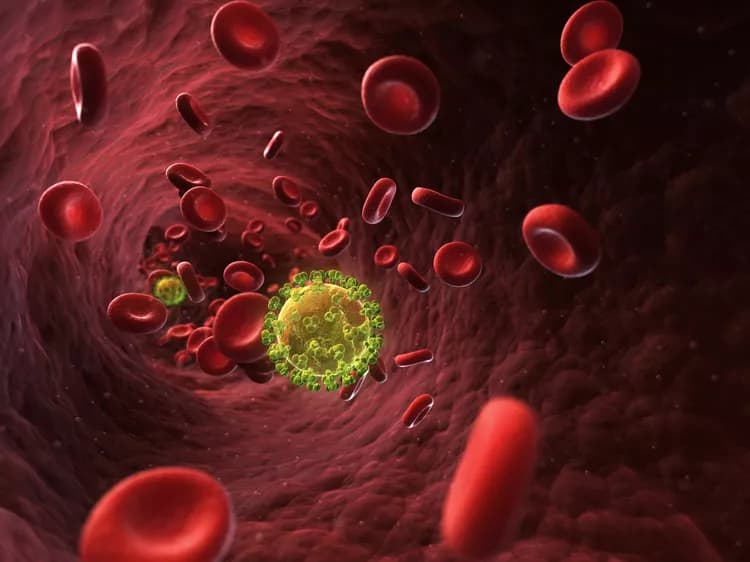Researchers at Albert Einstein College of Medicine of Yeshiva University have discovered how the virus that causes AIDS, HIV-1, is regulated. Published in Cell Host & Microbe, this discovery could lead to approaches to eliminating residues from HIV-1 that remain in patients undergoing HIV treatment, antiretroviral therapy.
Although highly active antiretroviral therapy (HAART) eliminates the HIV in the bloodstream to the point of the virus being undetectable, the virus can linger in several types of white blood cells, notably macrophages.
"In an HIV patient on HAART, drugs suppress viral replication, which means they keep the number of viral particles in a patient's bloodstream very low. However, HAART cannot kill the HIV-infected cells," lead author, Ekaterina Dadachova, Ph.D., professor of radiology, microbiology and immunology at Albert Einstein College of Medicine said. "Any strategy for curing HIV infection must include a method to eliminate viral-infected cells."
Scientists have known that the protein, SAMHD1, prevents HIV-1 from replicating in specific immune cells, but it was misunderstood in why SAMHD-1 fails to function in specific white blood, immune, cells that protect the body, like macrophages, specialized immune cells, that are vulnerable to HIV-1 infection, until now.
Using mass spectrometry, Dr. Diaz-Griffero found that SAMHD-1 can exist in two states, phosphorylated and unphosphorylated. These states exist depending on whether the macrophages are dividing (phosphorylated state) or not dividing (unphosphorylated state). When SAMHD-1 is phosphorylated, the macrophage is not protected from being infected with HIV-1.
Radioimmunotherapy (RIT) is usually used to treat cancer. The treatment uses cloned cells that seek out and destroy antigens or foreign bacteria and viruses. The antibody chosen to bind to a specific antigen is bound to a radioactive isotope. The news release reported that the research team “paired the monoclonal antibody (mAb2556) designed to target a protein expressed on the surface of HIV-infected cells with the radionuclide Bismuth-213”.
The research team concluded that mAb2556 was able to cross the blood-brain barrier and eliminate infected cells. They also found that this type of treatment combined with HAART reduced the HIV infection to undetectable levels.
"Antiretroviral treatment only partially penetrates the blood-brain barrier, which means that even if a patient is free of HIV systemically, the virus is still able to rage on in the brain, causing cognitive disorders and mental decline," Dr. Dadachova said. "Our study showed that RIT is able to kill HIV-infected cells both systemically and within the central nervous system."
Additional Reference:
http://www.sciencedirect.com/science/article/pii/S1931312813001157
Related Articles
Test Your Knowledge
Asked by users
Related Centers
Related Specialties
Related Physicians
Related Procedures
Related Resources
Join DoveHubs
and connect with fellow professionals


0 Comments
Please log in to post a comment.